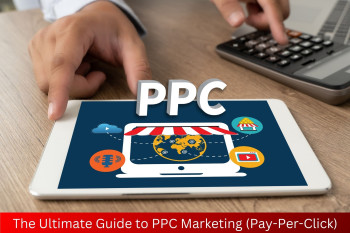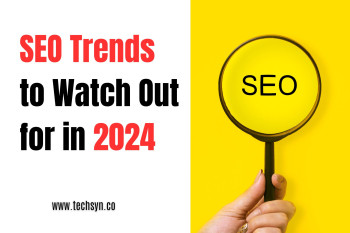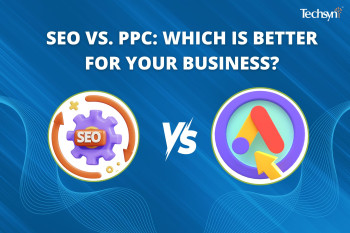Online marketing has become a significant part of businesses' marketing strategy in the digital age. Social Media Marketing (SMM) and Search Engine Optimization (SEO) are two popular strategies. While both aim to increase online visibility and drive website traffic, they have distinct differences that cater to various business needs. This article will explore the disparities between SMM and SEO and their benefits and provide tips to help you make the right choice for your business.
Understanding the difference between SMM and SEO
Although related to online marketing, SMM and SEO differ in their approaches and platforms. SMM primarily utilizes social media platforms to engage with users and promote brand visibility. It involves creating compelling content, engaging with followers, and running paid advertisements to reach a targeted audience. Conversely, SEO revolves around optimizing a website's visibility on search engine result pages (SERPs), aiming to improve organic rankings and generate more organic traffic.
The benefits of SMM for your business
Increase brand awareness and visibility
SMM offers an excellent opportunity to enhance your brand's presence and increase its visibility among potential customers. With the right content strategy, you can engage users on social media platforms, build brand recognition, and establish a unique voice to differentiate your business from competitors. By consistently sharing valuable and entertaining content, you can attract followers who may eventually become loyal customers.
Audience reach through social media platforms
One of the significant advantages of SMM is the ability to target specific demographics and reach your ideal audience. Social media platforms provide advanced targeting options, allowing you to narrow your audience based on age, location, interests, and more. This precision targeting ensures your message reaches the right people, increasing the chances of conversions and return on investment.
Building customer loyalty and engagement
SMM provides an effective platform for building customer loyalty and fostering engagement with your audience. You demonstrate care and attentiveness by responding to comments, messages, and inquiries. Engage your audience through contests, giveaways, and interactive content to keep them actively involved. Cultivating genuine customer connections can lead to long-lasting relationships and positive word-of-mouth, benefiting your business's reputation.
Driving Website Traffic
Social media can bring more people to your website. You can put links to your website in your social media posts, run social media contests and giveaways, and encourage users to visit your website to learn more about your products or services.
The benefits of SEO for your business
Higher organic search rankings and website traffic
SEO focuses on optimizing your website to improve its ranking on search engines like Google, Bing, and Yahoo. Higher rankings translate to increased visibility, as users are more likely to click on websites that appear on the first page of search results. By optimizing your website's content, structure, and metadata using relevant keywords, you can attract organic traffic actively searching for your products or services.
Long-term visibility and sustainability
Unlike paid advertising, which stops generating results once you cease funding it, the effects of SEO can be long-lasting. When your website ranks highly in organic search results, it receives consistent traffic without ongoing investment. While establishing a strong SEO foundation requires time and effort, its sustained visibility can provide a significant return on investment over time.
Lead Generation
With an increasing number of visitors to your website, you have a greater opportunity to convert them into leads. This can be achieved through various strategies, including strong calls to action, lead capture forms, and valuable content that encourages visitors to engage with your brand.
Enhance Brand Reputation
Ranking high in SERPs can enhance the trust and credibility of your brand. Websites that rank higher are often perceived as more authoritative and trustworthy by users, which can lead to increased sales and conversions.
Also Read: What is SEO In Digital Marketing? A Comprehensive Guide
Tips for choosing between SMM and SEO for your business
Assessing your business goals and target audience
Before making a decision, assessing your business goals and target audience is crucial. Consider the nature of your products or services, your target demographic, and their preferred online behaviour. If your target audience is more active on social media, Social Media Marketing may be the ideal choice. On the other hand, if they rely heavily on search engines for product research, investing in SEO may yield better results.
Considering your budget and resources
Another factor to consider is your budget and available resources. SMM often involves paid advertising to ensure broader reach and immediate results. If you have a limited budget, SEO might be a more cost-effective solution, primarily optimizing your website and creating content. Assess your financial capabilities and determine which strategy aligns better with your budgetary needs.
Integrating SMM and SEO strategies for maximum impact
Rather than choosing between SMM and SEO, consider integrating both strategies to maximize the impact of your online marketing efforts. You can create a comprehensive and holistic approach by combining SMM's ability to engage and build brand awareness with SEO's long-term visibility and traffic generation. Adopting a unified strategy allows you to leverage the strengths of both SMM and SEO to reach a wider audience and drive sustainable growth.
Additional Read: PPC Vs. SEO
Conclusion
When deciding between SMM and SEO for your business, it's crucial to understand their fundamental differences and the unique benefits they offer. SMM excels in increasing brand awareness, targeted audience reach, and customer engagement through social media platforms. Conversely, SEO focuses on achieving higher organic search rankings and sustained visibility on search engine result pages. By assessing your business goals, considering your target audience, and evaluating your budget and resources, you can make an informed decision or even integrate both strategies for optimal results.










